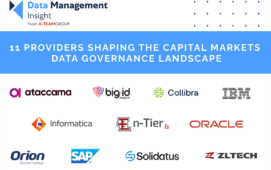Last month, the International Organisation of Securities Commissions’ (IOSCO) Technical Committee published the details of the new agreed template for the global collection of hedge fund data in order to better manage systemic risk. These new data requirements are aimed at bringing a new level of transparency to the traditionally opaque sector but will, in effect, mean that these funds will be forced to invest in data systems similar to their more conservative buy side counterparts.
According to IOSCO, the template was developed by the Task Force on Unregulated Entities, following requests from the Financial Stability Board (FSB) as well as from IOSCO members. Kathleen Casey, chairman of the technical committee, explains the rationale behind the template: “IOSCO believes that regulators should seek to develop a comparable and consistent set of data to be collected from local hedge fund managers and advisers to monitor systemic risks and prevent gaps in regulatory reporting requirements.”
The purpose of providing the industry with an agreed template is to allow for the standardised reporting of “consistent and comparable” data sets around these funds’ trading activities and counterparty interactions. Casey accepts that there is still a degree of debate going on about the need for this kind of an approach to the hedge fund sector at a political level, but notes: “setting out these categories of information may help regulators in the assessment of systemic risk and help to inform the relevant legislative debates”.
IOSCO has duly produced 11 proposed categories of data, which incorporate both supervisory and systemic data and build on the data collection recommendations set out in its final report on Hedge Fund Oversight. These categories comprise: general manager and advisor information; performance and investor information related to covered funds; assets under management; gross and net product exposure and asset class concentration; gross and net geographic exposure; trading and turnover issues; asset and liability issues; borrowing data; risk issues; credit counterparty exposure; and a number of other data issues such as complexity and concentration.
The IOSCO task force has recommended that the first data gathering exercise should be conducted on a “best efforts” basis (ergo a trial run) and before any legislation is established at a national level, in September this year. Given the range of data required and the fact that hedge funds have not previously been required to provide this data to the regulatory community, this should prove a taxing task. Moreover, much of the data is likely non-standard in format, including entity identifiers, and will need to be cleansed and validated before it is handed over, even if it is only a trial run.
The hedge fund community’s reaction to these proposals has been, understandably, to question their impact on the health of the industry. However, long term backers of hedge fund transparency, such as the regulators in Germany and France, will likely seize the opportunity to push on with change.
Regardless of whether all of these data sets become mandatory for reporting purposes, the hedge fund community is poised for change and this will be centred on these new data management requirements. It is no wonder the data management vendor community is so keenly focused on the area. As noted by a couple of recent surveys into the hedge fund market, spending on risk management and data in this sector is set to soar.
Subscribe to our newsletter




